Cities of Innovation: Zurich
Key indicators
ICT Infrastructure
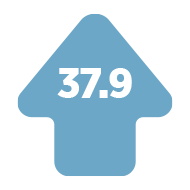
Average upload speed (Mbps)
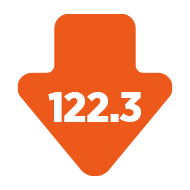
Average download speed (Mbps)
— City-wide fibre optic network
Local, national and international transport links
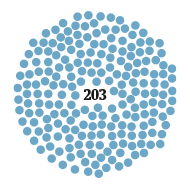
Flight destinations (20 million passengers per year)
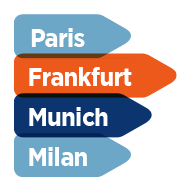
High-speed train destinations
— Zürich-Kloten international airport is located 10 minutes away from the city centre — 70 airline companies — Trains leaving for main Swiss cities every 30 min
University links and access to talent

2018 Global Cities Talent Competitiveness Index

QS World University ranking (Swiss Federal Institute of Technology)
— The Swiss Federal Institute of Technology (ETH): 85,000 students — Public and private research facilities such as IBM Research, Google and Disney Research Lab are in close proximity and able to network closely
Costs and availability of workspace
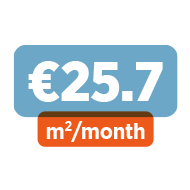
Office rent

Co-working spaces
City support for start-ups and SMEs

Digital Switzerland’s Startup Invest events
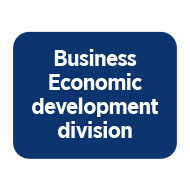
Business guidance
— Business Economic development division of the canton of Zurich is point of contact for business guidance, including location evaluations, setting up a business and local cluster integration
Financial support and access to investors & accelerators

Incubators
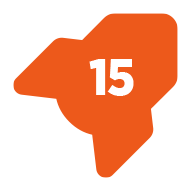
Accelerators
— Swiss tax rates are among the lowest in Europe. Taxes are levied at the three state levels, namely federal, cantonal and municipal. This system creates competition between the cantons and municipalities, and thus leads to lower taxes. Taxation competitive both at national and international level
Additional information
Local, national and international transport links
There are 250,000 flights to and from Zürich-Kloten international airport every year. According to a poll taken by the Airport Council International, Zürich is one of the three best airports in Europe.
Travel times by air:
— London 1:40 h
— Paris 1:15 h
— Madrid 2:20 h
Zurich has high-speed trains to Paris, Frankfurt, Munich or Milan, which take less than five hours.
Thanks to rapid inter-urban trains, buses and trams, the region has one of the best – punctual, clean, safe and fast – public transport networks in the world.
The city has an integrated mobility system with bike-, car- and scooter sharing options.
University links and access to talent
There is an emphasis on technology and exports – and thus the sectors of research and development in Switzerland. Investment in these fields as a percentage of gross domestic product is among the highest in the world. Few other countries have as many patents per head of population.
The Swiss Federal Institute of Technology (ETH) has produced no fewer than 21 Nobel Prize winners.
Zurich ranked first in the 2018 Global Cities Talent Competitiveness Index.
City support for start-ups and SMEs
Google and IBM have offices in Zurich, due to the readily available and highly educated local talent. Zurich’s labour market regulation is considered to be liberal, and Switzerland has extensive freedom of movement agreements with the EU.
Digital Switzerland’s Startup Invest events include Venture Days where startups meet investors, and IPO Days that look at alternatives to finance growth.
Financial support and access to investors & accelerators
There are 33 investors including a Business Angels network and VC Funds
Incubators include the F10 Incubator and BlueLion, and accelerators include Kickstart Accelerator, Swiss Startup Factory and Helvetia Insurtech Accelerator.
How to set up a business: a quickfire guide
What are my options?
Swiss company law offers flexibility and a wide range of options in designing business entities. The formal requirements are relatively low and registration can be obtained quickly.
Start-ups and SMEs typically opt for two types of legal entities: the stock corporation (Aktiengesellschaft or AG) or the limited liability company (Gesellschaft mit beschränkter Haftung or GmbH).
The key differentiating factor between these two types of entities concerns the minimum share capital required. For the AG, the minimum share capital amounts to CHF 100,000 (€88,000), to be paid- up at least 20%, but at a minimum of CHF 50,000. In contrast, the minimum share capital for the GmbH only amounts to CHF 20,000 (€18,000) and has to be fully paid-up.
The liability of the shareholders of both the AG and the GmbH is limited to the amount of their capital contribution. Contrary to the owners of a GmbH, the identities of shareholders of an AG are not published in the commercial register.
Both entities have to be formed by at least one shareholder (individual or legal entity). There are no legal requirements as to the residence or nationality of the founders/ shareholders or the board members. However, at least one person with residence in Switzerland must have legal capacity to act on the company’s behalf without any restrictions. This person can be a member of the board of directors, an executive or any other duly empowered person and can have sole authority to sign or be joint signatory with another Swiss resident.
Both an AG and a GmbH have to appoint an auditor but most start- ups can initially waive the audit requirement because of their size. However, an audit is recommended as soon as a start-up has received significant funding from investors.
How much does it cost?
The time needed to form a company depends primarily on how quickly the founders can provide the necessary information and pay in the equity capital into a blocked account with a Swiss bank. The deed of incorporation and the articles of incorporation must be in the official language of the place of incorporation, but bilingual versions providing an English translation are frequently used. Both the AG and the GmbH must be formed before a notary public in Switzerland. The founders are not required to appear personally and may be represented through a power of attorney. It normally takes one to two weeks from notarization to registration in the commercial register and publication in the Swiss Official Gazette of Commerce.
The set-up costs depend on several factors. The following numbers serve as an indication on pricing for basic structures meeting only the minimal capital requirements:
— Charges (notary public, commercial register): approx. CHF 1,500 to 3,000. The charges may slightly vary from canton to canton in Switzerland.
— Issuance stamp tax: The establishment of an AG or a GmbH triggers an issuance stamp tax of 1% of the amount of the capital contribution (for share capital and capital surplus) which exceeds CHF 1 million.
— Additional legal fees: such fees largely depend on the complexity of the given case.
Tax rates
The effective tax burden for companies in Switzerland currently ranges between approximately
12% and 25%, depending on the location of the registered seat of the company. Swiss tax law provides for certain incentives. For instance, a tax holiday may be granted for newly established companies under certain circumstances on a cantonal or even federal level.
Certain products and services in Switzerland are subject to special rules and regulations and require a license such as banking and insurance services.
Legal contact
Christian Wyss and Gian-Andrea Caprez
Vischer
Schützengasse 1 Postfach 8021 Zurich Switzerland
T: +41 58 211 34 00


